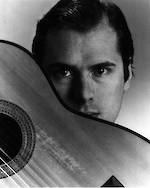Ebb & Flow Arts, July 2016
I am now in Maui for Ebb & Flow Arts, to do works by Charles Wuorninen, Emil Awad, Robert Pollock and William Anderson. I am the token guitarist at Ebb & Flow's Piano Synergy weekend. So grateful to Ebb & Flow, and its director Robert Pollock for this extraordinary effort.
Ebb & Flows productions are noteworthy because Pollock ignores cockeyed contemporary trends in music production/presentation, particularly Social Constructionism.
Like the mainstream political parties, or like many of the powerful Ivy League schools, the establishment arts organizations are failing us in many ways by being obtuse in various trendy ways, one example is the over-emphasis on social constrctionism.
Social Constructionism-->
All styles are the product of social forces.
All styles are of equal value (as artifacts of social forces).
I have no problem with this, except that at any given moment, some artistic values are more equal than others, and subject to the whims of those ensconced in places of power, each telling her own story about the social forces in play. Moreover, it's not really wise from a pragmatic standpoint. Henry James wouldn't like this. It's like saying all decisions are based on genetics and social forces, or all decisions are fated. it is a reductionist stance.
So, thank heavens for organizations like Ebb & Flow Arts and FIC21 (Festival Internacional Camerata 21), run by composers Robert Pollock and Emil Awad, respectively. They ignore fashion trends and stick to their deep probing into musical questions.
Now, at this moment, what does that mean? What are the composers in this circle exploring?
The 21 Century has given these kinds of musical loners a great gift--space and time. There is now an audience for new music, thanks to the brave minimalists, post-minimalists and Bang on a Can. They gave the world a huge gift by hitting a reset button. The public is less afraid of scary harmonies now, in part because they are not afraid of inordinate amounts of that being inflicted upon them. It's no longer such a worry. Audiences are up for anything now.
The circle of composers respresented by Ebb & Flow and FIC21 are finding their own authentic answers to old questions, really big questions that only seemed to be answered definitively. In retrospect, it looks like those answers were of that timed; they were 20th C. answers.
All the musical discoveries of the last century--what do they mean to us today? What does post-tonal harmony mean, today? How can it speak, how can it be powerful. Because it's a new century blessed with a huge dose of forgetfullness toward the last century, composers can come to these questions with freshly, less beholden to their 20th C. masters.
Note--I am speaking here about composers who choose not to reinvent the wheel, the composers who chose not to ignore the incredible discoveries of the last century. That is an option, but it's not of interest to Ebb & Flow or FIC21.
The question is like the teenager asking what the world means, and the answer comes in part, admittedly, from social constructs, but this circle of composers understands that each work is an answer at the intersection of the individual with the collective. What faces the composer at a given moment is a personal question, one that was recently explained very nicely by Kevin Volans in his talk at IAMIC. The composer faces that question alone, and if an audience pays attention, if the world has any use for it, the composer is very, very grateful, but that is not on the composer's mind.
One very important task for this circle of composers is overcoming hero worhsip and arriving at an authentic stance toward these musical questions.
For example, Robert Pollock had a strong foundation from his teacher Roger Sessions, but also opened himself to mentors he befriended over the years--Peter Schatt, whose tone clock (the 12 trichords and their "driving intervals") made an impression on Pollock, as did Norgard's infinities series. And Pollock has always sounded like Pollock. He's also always been very annoyed by any kind of hero worship. Instead there is collegial discussion through music. That is his vision, I believe. Joan Forsyth & I perform Pollock's Romance/Fantasy for guitar & piano, which is a masterpiece.
Emil Awad is a disciple of Babbitt, but not an imitator. In his solo guitar piece Fouad, he has created a dazzling work that assimilates Flamenco gestures with his own unique harmonic language that has seasoned over decades. Awad thinks of the Flamenco elements as very much analogoius to Babbitt's thoroughly contextualized but unmistakable jazz idioms in *All Set*.
My work for this program is a very short piece entitled Poema armónico. The title is a tribute to Baroque guitarist Fancesc Guerau, who did a series of little pieces that exhaustively explore the various modes.
I am exploring various modes of another type, in what I hope to be a set of pieces that are as exhaustive as what Guerau did. Moreover, I am thinking homophonically, set class homophony, which reminds us of the Baroque, no matter how contrapuntally the homophony is expressed.....
Wuorinen is a classical composer, and it is good to have a classical piece on a program. The Sonata for Guitar and Piano is one of Wu's best works from his "simple composition" period. (Simple Composition is a the titled of his composition method, and it's not really so simple as he makes it sound, imho....) That period was never characterized by simple music, it is instead a tricky approach, which never succeeds better than it does in this guitar & piano piece. Wu's recent Cygnus, for the Cygnus tutti formation with 2 *electric* guitars (!!!) is not at all tricky, it is of an entirely different epoch of Wuorinen music that leaves his dangersly complex "simple composition" era firmly in the past.

